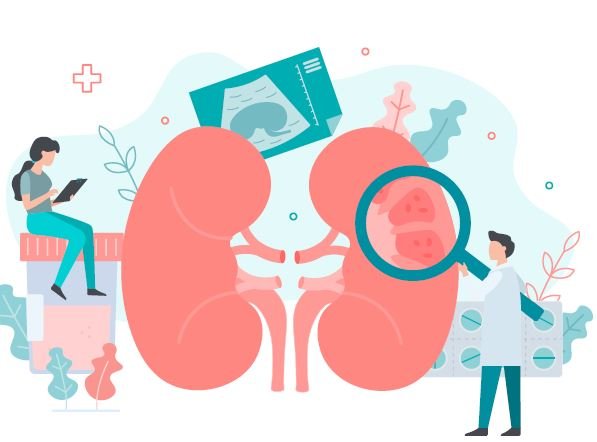Polycystic Kidney Disease (PKD) is a genetic disorder that causes numerous cysts to form in the kidneys. These fluid-filled cysts can lead to enlarged kidneys and disrupt their function over time. When it comes to adult polycystic kidney disease, understanding the symptoms, treatments, and supplementary options is crucial for managing the condition effectively. This comprehensive guide delves into all aspects of Adult Polycystic Kidney Disease (ADPKD), providing valuable insights for patients and caregivers alike.
Understanding Adult Polycystic Kidney Disease
What is Adult Polycystic Kidney Disease?
Adult Polycystic Kidney Disease is a common form of PKD that typically manifests in adulthood, often between the ages of 30 and 40. It is primarily caused by mutations in the PKD1 or PKD2 genes, which result in the formation of multiple cysts in the kidneys. These cysts can cause the kidneys to enlarge and lose function over time, leading to chronic kidney disease and potentially kidney failure.
Symptoms of Adult Polycystic Kidney Disease
The symptoms of Adult Polycystic Kidney Disease can vary widely among individuals. Common signs and symptoms include:
- Abdominal Pain: Persistent or intermittent pain due to enlarged kidneys or cyst complications.
- Hypertension: High blood pressure is a common early sign and can worsen kidney damage.
- Hematuria: Blood in the urine, which can be a result of cyst rupture.
- Frequent Urinary Tract Infections: Recurring UTIs due to cyst infections.
- Kidney Stones: Increased risk of stones due to altered kidney function.
- Enlarged Abdomen: Noticeable swelling of the abdomen due to enlarged kidneys.
- Fatigue: Persistent tiredness due to decreased kidney function.
Diagnosing Adult Polycystic Kidney Disease
Diagnosis of Adult Polycystic Kidney Disease typically involves a combination of family history, physical examination, and imaging tests such as ultrasound, CT scan, or MRI. Genetic testing may also be conducted to identify mutations in the PKD1 or PKD2 genes.
Treatment Options for Adult Polycystic Kidney Disease
While there is no cure for Adult Polycystic Kidney Disease, various treatment options can help manage the symptoms and slow the progression of the disease.
Medical Treatments
- Blood Pressure Management: Controlling hypertension is crucial. Medications such as ACE inhibitors or angiotensin II receptor blockers (ARBs) are commonly prescribed.
- Pain Management: Over-the-counter pain relievers like acetaminophen can help, but NSAIDs should be used cautiously due to their impact on kidney function.
- Antibiotics: Prescribed for treating urinary tract infections.
- Tolvaptan: A medication specifically approved for slowing kidney function decline in ADPKD patients.
Surgical Treatments
- Cyst Decortication: Surgical removal or drainage of large cysts to relieve pain and pressure.
- Nephrectomy: In severe cases, removal of one or both kidneys may be necessary.
- Kidney Transplant: For those who reach end-stage renal disease, a kidney transplant may be the best option.
Lifestyle Modifications and Home Remedies
Dietary Changes
- Low-Sodium Diet: Reducing salt intake helps manage blood pressure.
- Hydration: Staying well-hydrated can help prevent kidney stones.
- Balanced Diet: Focus on a diet rich in fruits, vegetables, lean proteins, and whole grains to support overall health.
Exercise
Regular physical activity can help maintain a healthy weight, lower blood pressure, and improve overall well-being.
Supplement for Polycystic Kidney Disease
Supplements can play a supportive role in managing Adult Polycystic Kidney Disease, although they should not replace prescribed treatments. Always consult with a healthcare provider before starting any new Herbal Supplement for Polycystic Kidney Disease regimen.
Recommended Supplements
- Omega-3 Fatty Acids: Known for their anti-inflammatory properties, omega-3s can help reduce inflammation in the kidneys.
- Coenzyme Q10 (CoQ10): May support kidney function and overall cellular energy production.
- Vitamin D: Important for bone health and immune function, which can be compromised in kidney disease.
- Probiotics: Beneficial for gut health and may support kidney function by reducing the production of toxins.
Conclusion
Living with Adult Polycystic Kidney Disease requires a multifaceted approach involving medical treatment, lifestyle modifications, and supportive supplements. Early diagnosis and proactive management are key to slowing the progression of the disease and maintaining a good quality of life. Always work closely with your healthcare team to develop a personalized care plan that meets your unique needs.
By staying informed and taking a proactive role in your health, you can effectively manage Adult Polycystic Kidney Disease and live a fulfilling life.


Recent Comments